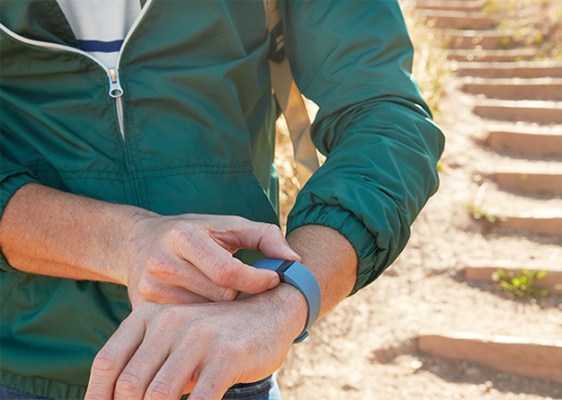Fitness tracking company Fitbit has just issued a recall (and stopped sales) of their popular product the Fitbit Force, a wrist-borne activity tracker that follows their Fitbit Flex but adds a display and more advanced features. The Force was a popular item according to most estimates, and was often sold out after its launch late last year.
Complaints began to arise from users who were experiencing skin rash issues from sustained wear of the band, however. The company previously offered to replace devices with other trackers, or refund the money of those affected, but now it’s going all in on a full-scale recall. Here’s the official word from the company on the move:
We wanted to provide an update on our investigation into reports we have received about Force users experiencing skin irritation.
From the beginning, we’ve taken this matter very seriously. We hired independent labs and medical experts to conduct a thorough investigation, and have now learned enough to take further action. The materials used in Force are commonly found in many consumer products, and affected users are likely experiencing an allergic reaction to these materials.
While only a small percentage of Force users have reported any issue, we care about every one of our customers. We have stopped selling Force and are in the process of conducting a voluntary recall, out of an abundance of caution. We are also offering a refund directly to consumers for full retail price. We want to thank each and every member of the Fitbit community for their continued loyalty and support. We are working on our next-generation tracker and will announce news about it soon.
For additional information, please contact our support line at: 888-656-6381, or visit www.fitbit.com/forcesupport.
Fitbit cofounder and CEO James Park also released a letter to Force users and the Fitbit community addressing the issue. In it, he notes that only 1.7 percent of users have officially reported issues with skin irritation to the company. But he also details the results of an independent study conducted by an external group of experts contracted by Fitbit, which found that the problem is indeed allergic contact dermatitis, probably resulting from contact with either trace amounts of nickel or with strap materials/glue used in product construction.
Here’s where Force owners can go to request a return for their device. Affected users send in their Force, and once it’s confirmed to be affected by the recall, Fitbit will send you a physical check for the total cost of the device, which should arrive between two and six weeks after the Force is received by the company.
There’s no firm ETA on when a new (presumably hypoallergenic) version of the Force will arrive, according to Fitbit, but it’s already in the works.
Fitbit isn’t the only company to have run into trouble with an activity tracker, resulting in a recall. Jawbone had to call back its first-generation UP wristband, but for entirely different reasons: That device was prone to fatal failures shortly after consumers got it home, leading the company to take it back to the drawing board for nearly a year.
